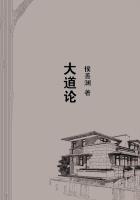And this is the second fact, with which one has to reckon. If the privileged villainage of ancient demesne is founded on the same causes as villainage pure and simple, the distinguishing element of 'privilege' is supplied to it by the private interest of the king. This seems obvious enough, but it must be insisted upon, because it guards against any construction which would pick out one particular set of rights, or one particular kind of relations as characteristic of the institution. Legal practice and later theory concerned themselves mostly with peculiarities of procedure, and with the eventuality of a subject owning the manor. But the peculiar modes of litigation appropriate to the ancient demesne must not be disconnected from other immunities, and the ownership of a private lord is to be considered only as engrafted on the original right of the king. With this preliminary caution, we may proceed to an examination of those features which are undoubtedly entitled to attract most attention, namely, the special procedure, which is put in action when questions arise in any way connected with the soil of ancient demesne.
Bracton says, that in such cases the usual assizes and actions do not lie, and the 'little writ of right close' must be used 'according to the custom of the manor.' The writ is a 'little and a close' one, because it is directed by the king to the bailiffs of the manor and not to the justices or to the sheriff.(20*)It does not concern freehold estate, but only land of base though privileged tenure. An action for freehold also may be begun in a manorial court, but in that case the writ will be 'the writ of right patent' and not 'the little writ of right close.'(21*)The exclusion of the tenants from the public courts is a self-evident consequence of their base condition; in fact, pleading ancient demesne in bar of an action is, in legal substance, the same thing as pleading villainage.(22*) Of course, an outlet was provided by the manorial writ in this case, and there was no such outlet for villains outside the ancient demesne; but as to the original jurisdiction in common law courts, jurisdiction that is in the first instance, the position was identical. Though legally self-evident, this matter is often specially noticed, and sometimes stress is laid on peculiarities of procedure, such as the inapplicability of the duel and the grand assize (23*) in land to ancient demesne, peculiarities which, however, are not universally found,(24*) and which, even if they were universally found, would stand as consequence and not as cause. This may be accounted for by the observation that the legal protection bestowed on this particular class of holdings, notwithstanding its limitations, actually imparted to them something of the nature of freehold, and led to a great confusion of attributes and principles. Indeed, the difficulty of keeping within the lines of privileged 'villainage' is clearly illustrated by the fact that the 'little writ,' with all its restrictions, and quite apart from any contention with the lord, recognises the tenant in ancient demesne as capable of independent action.
Villains, or men holding in villainage, have no writ, either manorial or extra-manorial, for the protection or recovery of their holdings, and the existence of such an action for villain socmen is in itself a limitation of the power of lord and steward, even when they are no parties to the case. And so the distinction between freehold and ancient demesne villainage is narrowed to a distinction of jurisdiction and procedure. This is so much the case that if, by a mere slip as it were, a tenement in ancient demesne has been once recovered by an assize of novel disseisin, the exclusive use of the 'little writ' is broken, and assizes will ever lie hereafter, that is, the tenement can be sued for as 'freehold' in common law courts.(25*) Surely this could happen only because the tenure in ancient demesne, although a kind of villainage, closely resembled freehold.
One has primarily to look for an explanation of these great privileges to manors, which had been granted by the king to private lords. On such lands the 'little writ' lay both when 'villain socmen' were pleading against each other,(26*) and when a socman was opposed to his lord as a plaintiff.(27*) This last eventuality is, of course, the most striking and important one.
There were some disputes and some mistakes in practice as to the operation of the rule. The judges were much exercised over the question whether an action was to be allowed against the lord in the king's court. The difficulty was, that the contending parties had different estates in the land, the one being possessed of the customary tenancy in ancient demesne, and the other of the frank fee. There are authoritative fourteenth-century decisions to the effect that, in such an action, the tenant had the option between going to the court at Westminster or to the ancient demesne jurisdiction.(28*)The main fact remains, that a privileged villain had 'personam standi in judicio' against his lord, and actually could be a plaintiff against him. Court rolls of ancient demesne manors frequently exhibit the curious case of a manorial lord who is summoned to appear, distrained, admitted to plead, and subjected to judgment by his own court.(29*) And as I said, one looks naturally to such instances of egregious independence, in order to explain the affinity between privileged villainage and freehold. The explanation would be insufficient, however, and this for two simple reasons. The passage of the manor into the hands of a subject only modifies the institution of ancient demesne, but does not constitute it; the 'little writ of right'















